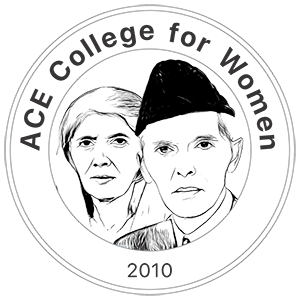Impact of Perceived Differential Experiences and Rejection Sensitivity on Positive Youth Development
Youth is an important asset of any nation. The transition state faced by youth is highly challenging due to psychosocial changes that further determines developmental trajectory1. Since birth, humans live in nested relationships and the utmost relationships include parents and siblings that do influence the developmental course of an individual2. Individuals at this age are very keen observer of their environment and they do detect that how their parents interact with them and their siblings3.
Perceived differential parental experiences by an individual because of comparison with siblings provide base for learning of psychological patterns and behaviors4. Those who are highly sensitive to rejection have even worse effects of differentiation on positive youth development5. Positive youth development includes competence, connection, caring, character and confidence as per Lerner6.
A quantitative survey was conducted and N=120 dyads living with parents participated in the study. Perceived Differential Parental Interaction Sub-Scale7, Rejection Sensitivity Scale8, Positive Youth Development Scale9 and a basic demographic sheet comprising a booklet was administered after checking reliability and suitability of instruments to collect data.
Findings revealed that siblings do report perceived differential experiences. Parental control, sibling antagonism and jealousy, peer orientation and delinquency showed negative correlation with positive youth development mediated by rejection sensitivity whereas, parental affection, sibling caretaking and closeness, peer popularity promotes positive youth development by having positive correlation with all positive factors highlighted by Learner. It was also found that girls are higher on positive youth development as compared to boys.
Concluded that perceived interactions at home play an important role in youth development and family-based interventions can help to promote positive development of youth.
REFERENCES
- Geldhof, G.J., E.P. Bowers, M.J. Boyd, M.K. Mueller and C.M. Napolitano et al., 2013. Creation of short and very short measures of the five Cs of positive youth development. J. Res. Adolesc., 24: 163-176
- Rageliene, T., 2016. Links of adolescent’s identity development and relationship with peers: a systematic literature review. J. Can. Acad. Child Adolesc. Psychiatry, 25: 97-102
- Kausar, R. and S.R. Kazmi, 2011. Perceived parental acceptance-rejection and selfefficacy of Pakistani adolescents. J. Indian Acad. Appl. Psychol., 37: 224-232
- Richmond, M.K., C.M. Stocker and S.L. Rienks, 2005. Longitudinal associations between sibling relationship quality, parental differential treatment, and children`s adjustment. J. Family Psychol., 19: 550-559
- Ehrlich, K.B., S.A. Gerson, R.E. Vanderwert, E.N. Cannon and N.A. Fox, 2015. Hypervigilance to rejecting stimuli in rejection sensitive individuals: behavioral and neurocognitive evidence. Personality Individual Differences, 85: 7-12
- Lerner, R.M., J.V. Lerner, S. Lewin-Bizan, E.P. Bowers, M.J. Boyd, M.K. Mueller and C.M. Napolitano, 2011. Positive youth development: processes, programs, and problematics. J. Youth Dev., 6: 38-62
- Daniels, D. and R. Plomin, 1985. Differential experience of siblings in the same family. Dev. Psychol., 21: 747-760
- Downey, G. and S.I. Feldman, 2013. RSQ/RS personal (8 item and 18 item). RSQ/RS.
- Lopez, A., J.R. Yoder, D. Brisson, S. Lechuga-Pena and J.M. Jenson, 2014. Development and validation of a positive youth development measure. Res. Social Work Pract., 25: 726-736
How to Cite this paper?
APA-7 Style
Haroon,
M., Hanif,
R., Ajmal,
M. (2021). Impact of Perceived Differential Experiences and Rejection Sensitivity on Positive Youth Development. Asian Journal of Emerging Research, 3(1), 94-96. https://doi.org/10.3923/ajerpk.2021.94.96
ACS Style
Haroon,
M.; Hanif,
R.; Ajmal,
M. Impact of Perceived Differential Experiences and Rejection Sensitivity on Positive Youth Development. Asian J. Emerg. Res 2021, 3, 94-96. https://doi.org/10.3923/ajerpk.2021.94.96
AMA Style
Haroon
M, Hanif
R, Ajmal
M. Impact of Perceived Differential Experiences and Rejection Sensitivity on Positive Youth Development. Asian Journal of Emerging Research. 2021; 3(1): 94-96. https://doi.org/10.3923/ajerpk.2021.94.96
Chicago/Turabian Style
Haroon, Mehak, Rubina Hanif, and Muhammad Ajmal.
2021. "Impact of Perceived Differential Experiences and Rejection Sensitivity on Positive Youth Development" Asian Journal of Emerging Research 3, no. 1: 94-96. https://doi.org/10.3923/ajerpk.2021.94.96

This work is licensed under a Creative Commons Attribution 4.0 International License.




